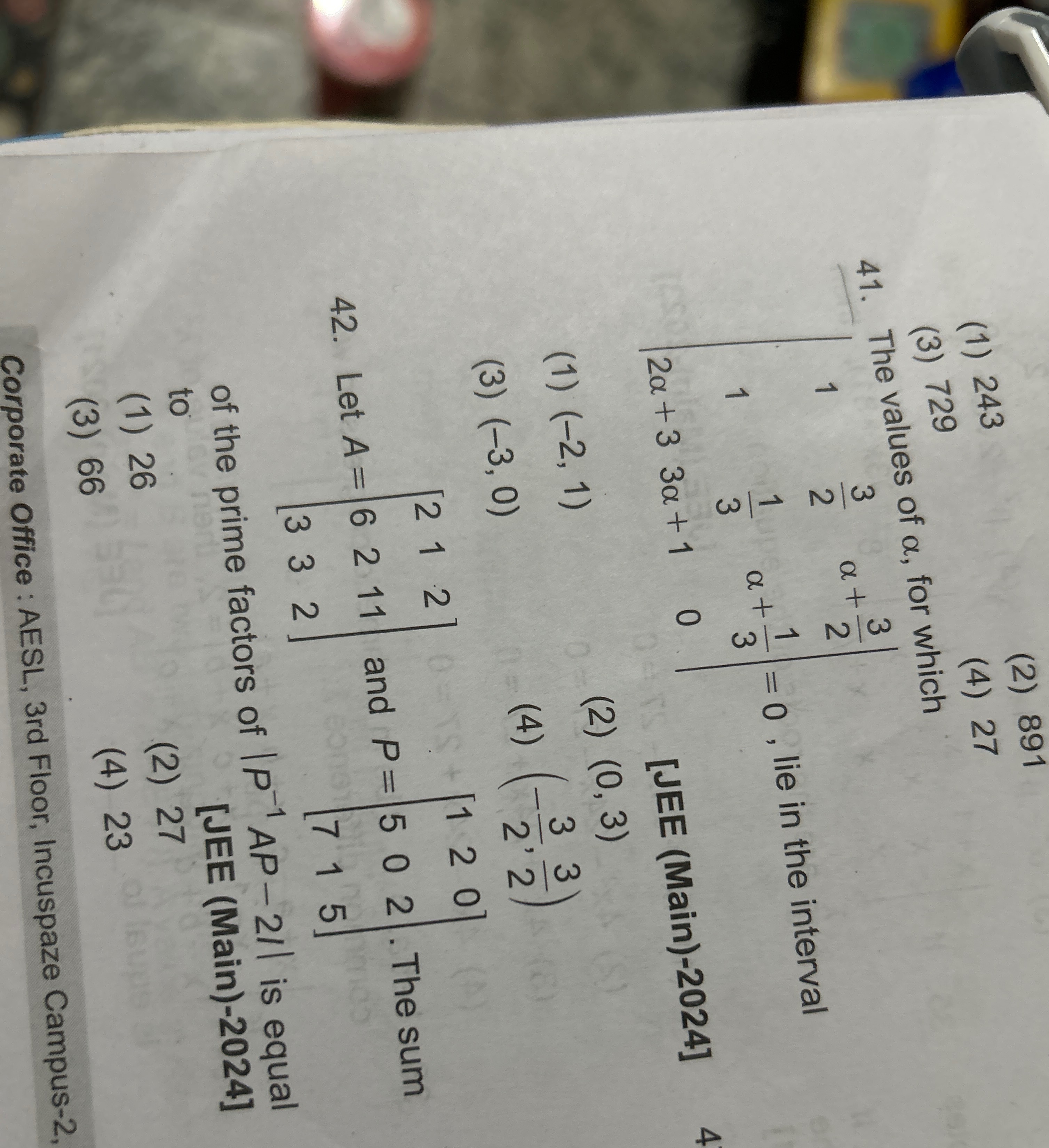Question
Question: The values of $\alpha$, for which $\begin{array}{ccc} 1 & \frac{3}{2} & \alpha +3 \\ 1 & 2 & \alpha ...
The values of α, for which 112α+32323α+1α+3α+310 = 0, lie in the interval [JEE (Main)-2024]

A
(-2, 1)
B
(0, 3)
C
(-3, 0)
D
(-23,23)
Answer
No real values of α satisfy the equation.
Explanation
Solution
The given determinant is:
D=112α+32323α+1α+3α+310We need to find the values of α for which D=0. Expanding the determinant along the first row:
D=123α+1α+310−2312α+3α+310+(α+3)12α+323α+1Calculate each minor:
- 1×[2(0)−(α+31)(3α+1)]=−(α+31)(3α+1)=−3(3α+1)2
- −23×[1(0)−(α+31)(2α+3)]=23(α+31)(2α+3)=21(3α+1)(2α+3)
- (α+3)×[1(3α+1)−2(2α+3)]=(α+3)[3α+1−4α−6]=(α+3)(−α−5)=−(α+3)(α+5)
Now, sum these terms and set D=0:
−3(3α+1)2+21(3α+1)(2α+3)−(α+3)(α+5)=0Expanding and simplifying:
−α2−29α−683=0Multiply by -6 to clear denominators:
6α2+27α+83=0To find the values of α, we calculate the discriminant Δ=b2−4ac:
Δ=(27)2−4(6)(83)=729−1992=−1263Since the discriminant Δ<0, the quadratic equation has no real roots.
Therefore, there are no real values of α for which the determinant is zero.
